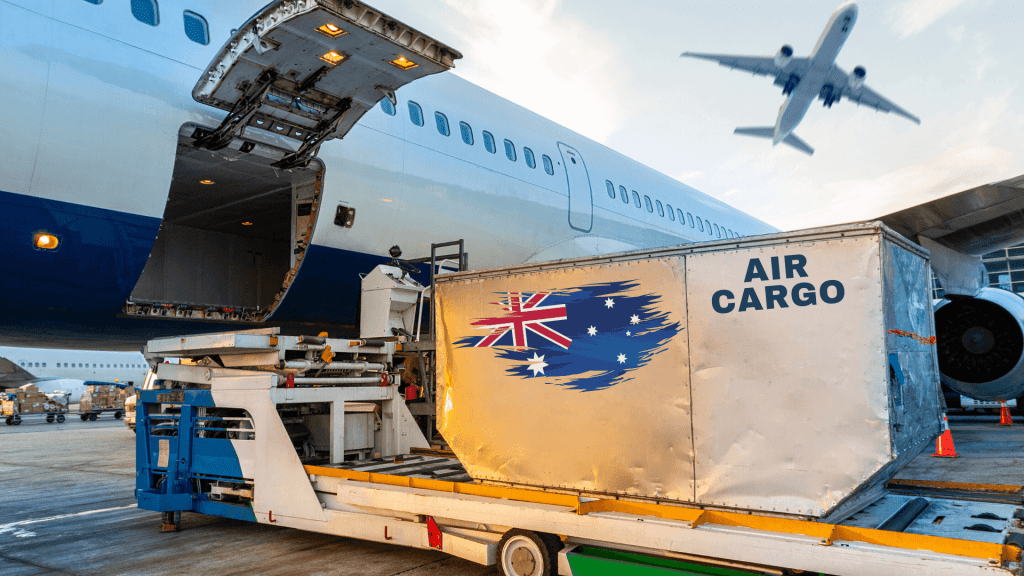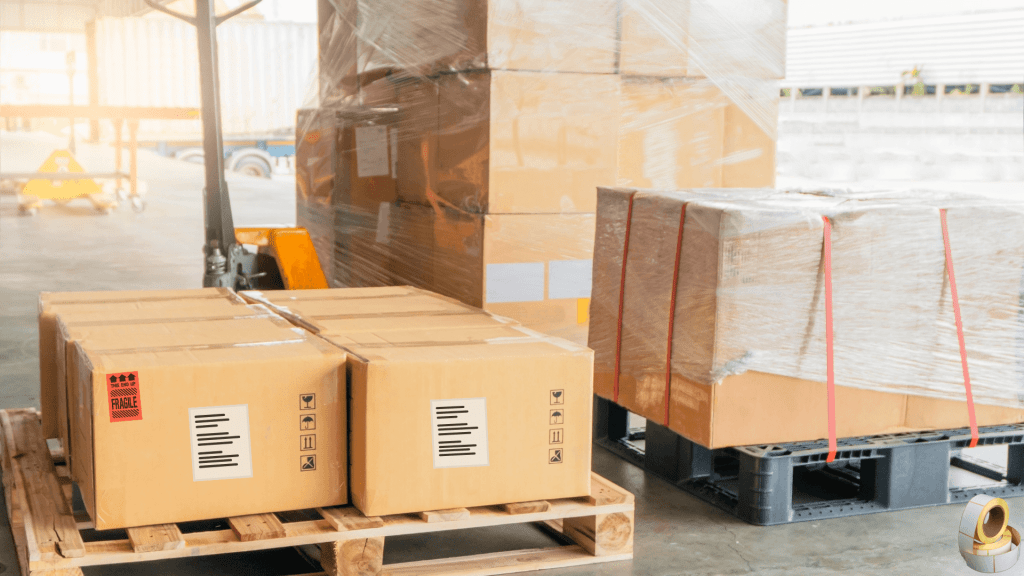In the dynamic world of import and export, Australian businesses constantly seek efficient and cost-effective solutions to move their goods. If you’re dealing with smaller cargo volumes, you’ve likely encountered the term “LCL shipping.” But what exactly does it entail? LCL stands for “Less than Container Load” shipping. It’s a tailored solution for businesses whose cargo doesn’t fill an entire shipping container (typically 20ft or 40ft). In LCL shipping, your cargo is consolidated with shipments from other businesses to fill a single container. This way, everyone shares the container space and transportation costs, making it a budget-friendly option for businesses starting out or managing smaller import volumes.
Understanding the LCL vs FCL Conundrum

Many businesses grapple with the decision between LCL and FCL (Full Container Load) shipping. Here’s a clear breakdown to help you navigate this choice:
- LCL: Perfect for smaller shipments, generally under 10 cubic meters. It offers a cost-effective approach per unit of cargo and allows for more frequent deliveries, ideal for businesses with fluctuating import needs.
- FCL: The go-to option for larger shipments that fill an entire container. FCL boasts faster transit times and reduced risk of handling damage since your cargo travels alone.
Is LCL Shipping Safe for My Australian Imports and Exports?
While LCL involves more handling compared to FCL, reputable freight forwarders like GenFreight Global Logistics Pty Ltd implement robust procedures to ensure cargo safety. Proper packaging that adheres to international shipping standards, secure container stuffing practices, and real-time shipment tracking minimise risks. Additionally, most LCL shipments are insured, providing an extra layer of protection.
LCL vs FTL (Full Truck Load): A Quick Distinction
It’s important to differentiate between LCL (Less than Container Load) and FTL (Full Truck Load) when considering land-based freight options. LCL deals with ocean freight, transporting goods via container ships across vast distances. In LCL shipments, your cargo is consolidated with shipments from other businesses to fill a single container. In contrast, FTL refers to transporting goods via trucks across land. With FTL, you pay to utilise the entire capacity of a truck for your shipment. This means you have exclusive use of the truck’s space and it won’t be consolidated with cargo from other businesses. Both LCL and FTL cater to situations where you don’t have enough cargo to justify filling an entire container or truck on your own.
Unlocking the Benefits of LCL Shipping for Australian Businesses
Australian businesses can leverage several advantages by incorporating LCL shipping into their import and export strategies:
- Cost-Effectiveness: You only pay for the space your cargo occupies within the container, making it a budget-conscious choice for smaller shipments.
- Inventory Management: LCL allows for more frequent deliveries, reducing the need for large inventory storage spaces in Australia. This can be particularly beneficial for businesses with limited storage capacity or those testing the waters with new products in the Australian market.
- Flexibility: LCL is ideal for businesses with fluctuating import needs or those starting their import journey in Australia. It allows for greater flexibility in terms of shipment volume and frequency.
- Accessibility: During peak shipping seasons, securing container space can be challenging. However, LCL shipments are often easier to find as they can be consolidated with other cargo.
Exploring the Downsides of LCL Shipping: Making an Informed Decision
While LCL offers a multitude of benefits, it’s essential to be aware of its potential drawbacks:
- Transit Times: Due to the consolidation and deconsolidation processes at origin and destination ports, LCL shipments generally take longer than FCL shipments to reach their final destination.
- Cost per Cubic Meter: While LCL is cost-effective overall, the cost per cubic meter can be higher than FCL, especially for smaller shipments. This is because the fixed costs associated with the container are spread across a smaller volume of cargo.
- Potential Delays: Your shipment might be impacted by delays experienced by other consolidated cargo within the container. If another shipment faces customs clearance issues, for instance, it could hold up the entire container, impacting your delivery timeline.
- Increased Handling: The consolidation and deconsolidation processes involve more handling of your cargo, which raises the possibility of minor damage. However, proper packaging and secure container stuffing practices can significantly mitigate this risk.
LCL or Air Cargo: Choosing the Speed Demon

When it comes to speed, air cargo reigns supreme. However, this speed comes at a premium price. Here are some key factors to consider when deciding between LCL and air cargo for your Australian imports and exports:
- Urgency: If speed is of the essence and you require your goods in Australia as soon as possible, air cargo might be the better option.
- Shipment Size: As the size of your shipment increases, LCL becomes more cost-effective compared to air cargo. For very small shipments, however, air cargo might be comparable in price.
- Destination: Air cargo costs often vary less by destination compared to LCL. With LCL shipping, longer distances can significantly impact the price due to additional handling and transportation costs at ports. Air cargo costs, on the other hand, are more standardised across different routes. This can be a benefit if you’re importing from a remote location.
Ultimately, the best choice between LCL and air cargo depends on your specific needs and priorities. Consider the urgency of your requirement, the size and value of your shipment, and your budget to make an informed decision
The Impact of Distance on LCL Costs
While LCL shipping offers a budget-friendly option for Australian businesses importing and exporting smaller cargo volumes, it’s important to consider how distance can affect the overall cost. Unlike FCL shipments that travel directly to their destination, LCL shipments often involve additional handling and transportation costs at origin and destination ports. This means that longer distances between your supplier and Australia can translate into higher overall LCL costs.
For instance, an LCL shipment from China to Australia might incur additional handling charges at both the Chinese and Australian ports, compared to a shipment originating from a closer location in Southeast Asia. These additional handling costs can contribute to a higher overall price tag for your LCL shipment.
Partnering with a Reputable LCL Freight Forwarder: Your Key to Success
Navigating the complexities of LCL shipping can feel overwhelming, especially for businesses new to international trade, whether you’re importing or exporting goods. This is where partnering with a reputable LCL freight forwarder like GenFreight Global Logistics Pty Ltd becomes crucial. Our team of experienced professionals possesses the knowledge and expertise to guide you through every step of the LCL journey, ensuring a smooth and stress-free experience.
Benefits of Partnering with GenFreight:
- Streamlined Operations: We handle all the complexities of LCL shipping, from booking and consolidation to customs clearance and final delivery, for both imports and exports. This allows you to focus on your core business activities, whether you’re sourcing materials overseas or getting your products to international customers.
- Cost Optimisation: Our extensive network of shipping partners and industry knowledge enable us to secure competitive LCL rates for both your Australian imports and exports. We also provide transparent pricing structures, so you know exactly what to expect.
- Seamless Customs Clearance: Whether you’re navigating import regulations in Australia or ensuring your export shipment complies with destination country requirements, GenFreight Global Logistics has a team of customs clearance specialists who can guide you through the process. We minimise delays and potential penalties for both import and export clearances.
- Real-Time Tracking and Visibility: Gain peace of mind with real-time shipment tracking tools. You can monitor the progress of your LCL shipment from origin to final destination, no matter if it’s an import coming to Australia or an export leaving your shores.
- Risk Management: LCL shipments involve inherent risks, regardless of import or export. GenFreight can help you mitigate these risks by providing cargo insurance options and ensuring proper packing and container stuffing practices for both import and export shipments.
Making the Most of LCL Shipping: Essential Tips for Australian Businesses

By following these tips, you can further enhance the efficiency and cost-effectiveness of your LCL shipping strategy:
- Accurate Cargo Measurement: Precise measurement of your cargo dimensions (length, width, and height) is crucial. Inaccurate measurements can lead to unexpected charges and delays at the port.
- Consolidation Opportunities: Explore opportunities to consolidate your cargo with other businesses to fill a container more efficiently. This can significantly reduce your LCL shipping costs.
- Packaging Best Practices: Invest in high-quality packaging materials that meet international shipping standards. Proper packaging minimises the risk of damage during handling and transportation.
- Clear Labeling: Ensure all your cargo is clearly labeled with accurate product descriptions, weights, and any special handling instructions. This facilitates smooth customs clearance and reduces the risk of delays.
- Communication is Key: Maintain clear and consistent communication with your LCL freight forwarder. Provide them with all necessary information upfront, including shipment details, customs documentation, and any specific requirements.
The Bottom Line: LCL Shipping – A Valuable Tool for Australian Businesses
LCL shipping presents a valuable tool for Australian businesses looking to import goods. It offers a cost-effective solution for smaller shipments, enabling greater flexibility and frequent deliveries. By understanding the advantages and disadvantages of LCL shipping, and by partnering with a reputable LCL freight forwarder, you can leverage this strategy to optimise your import operations and achieve success in the Australian market.
